Pongal is a harvest festival celebrated by the Tamil community. It is a celebration to thank the Sun, Mother Nature and the various farm animals that help to contribute to a bountiful harvest. Celebrated over four days, Pongal also marks the beginning of the Tamil month called Thai, which is considered an auspicious month. It usually falls on the 14th or 15th of January each year.
Pongal is also the name of the dish made and eaten during this festival. It is a mixture of boiled sweet rice. It is derived from the Tamil word pongu, which means “to boil over”.
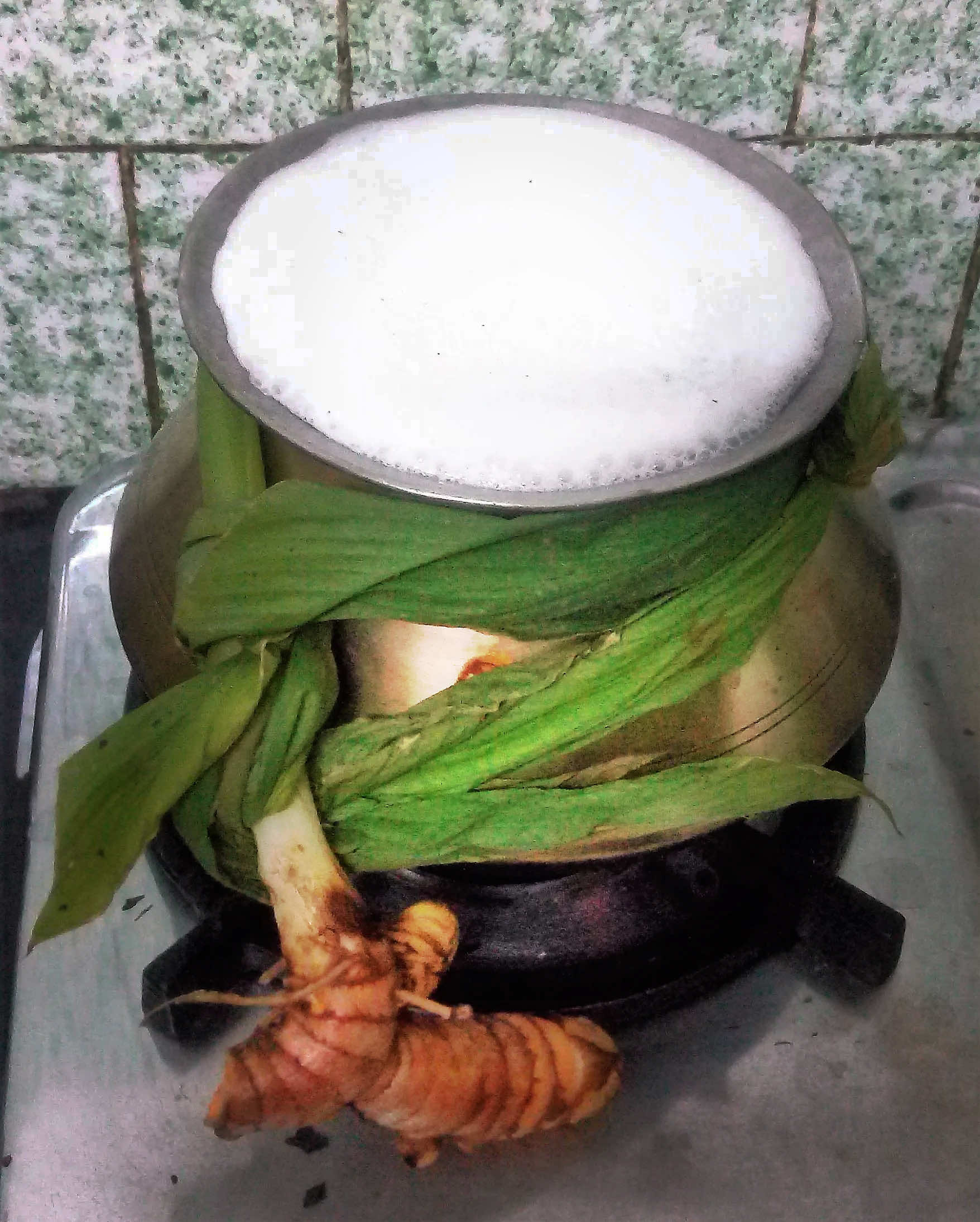
The Pongal festival is a four-day celebration affair. Each day is marked by different festivities- The first day is called the Bhogi festival; the Second day is called Thai Pongal; the Third day is called Mattu Pongal; the Fourth day is called Kaanum Pongal.
DAY 1:
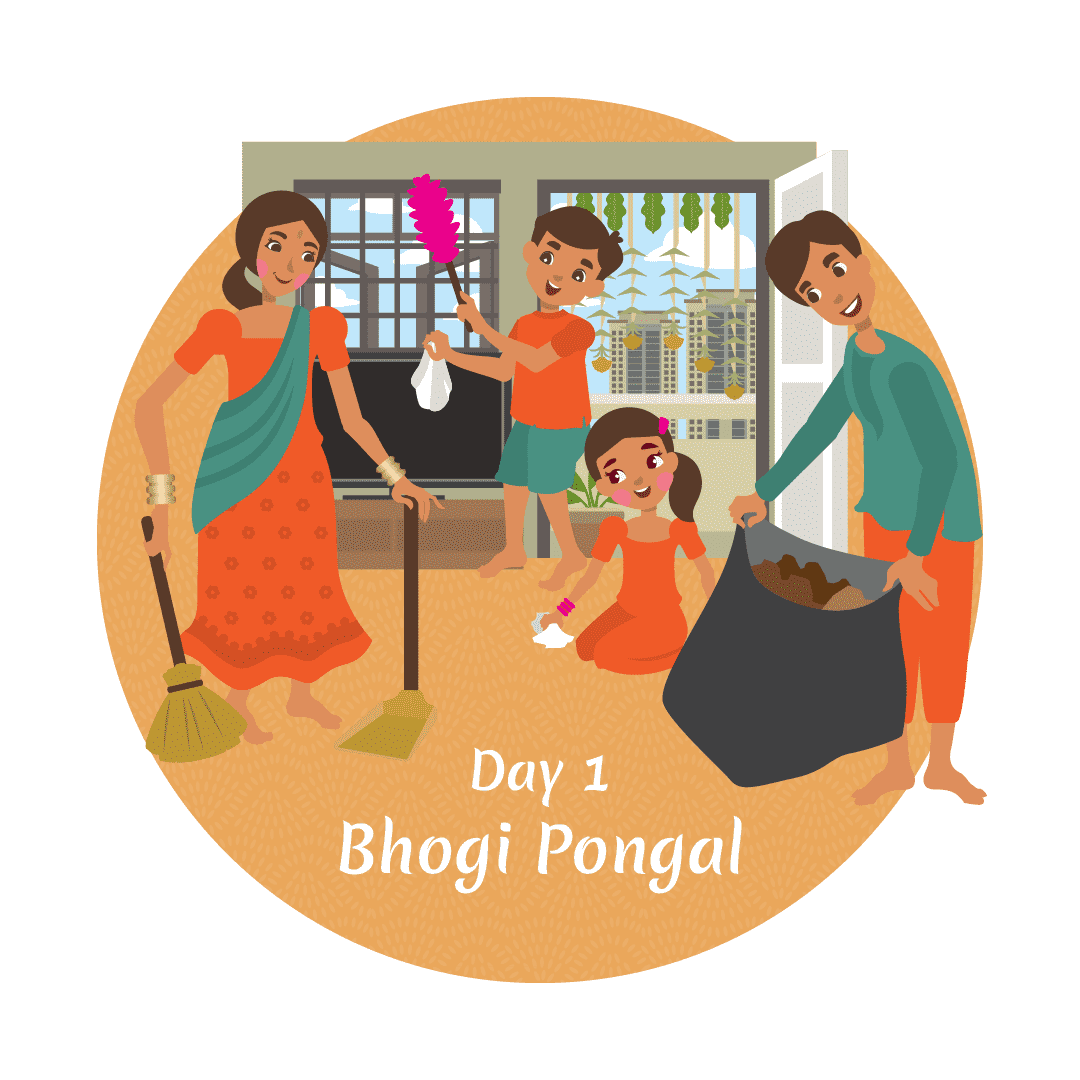
The first day of Pongal is called Bhogi. It is a day where cleaning and discarding of old belongings are carried out to signify a fresh start. New clothes are worn, houses are decorated in the spirit of the festivity.
DAY 2:
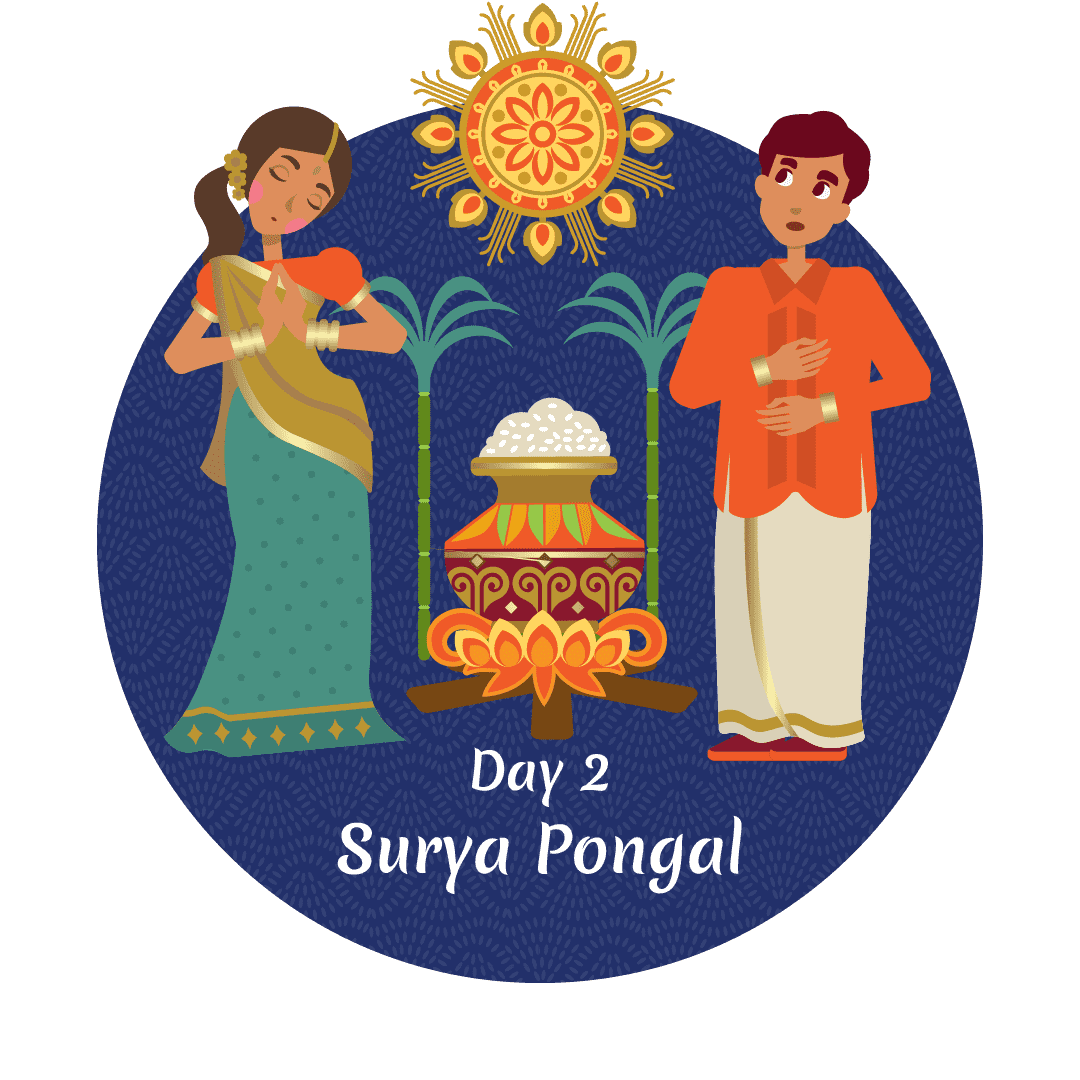
The second day is the main day of Pongal and is celebrated as Surya Pongal. On this day, the Sun God is honoured. Colourful decorative floor patterns called kolam are drawn at the entrance of one’s home, and each household cooks a pot of fresh rice with milk at auspicious timings.
As the milk boils freely over the pot, family members shout out happily “Pongalo Pongal”! After the Pongal is offered to the Sun God, they would feast on several Pongal dishes that are prepared especially for the day.
DAY 3:
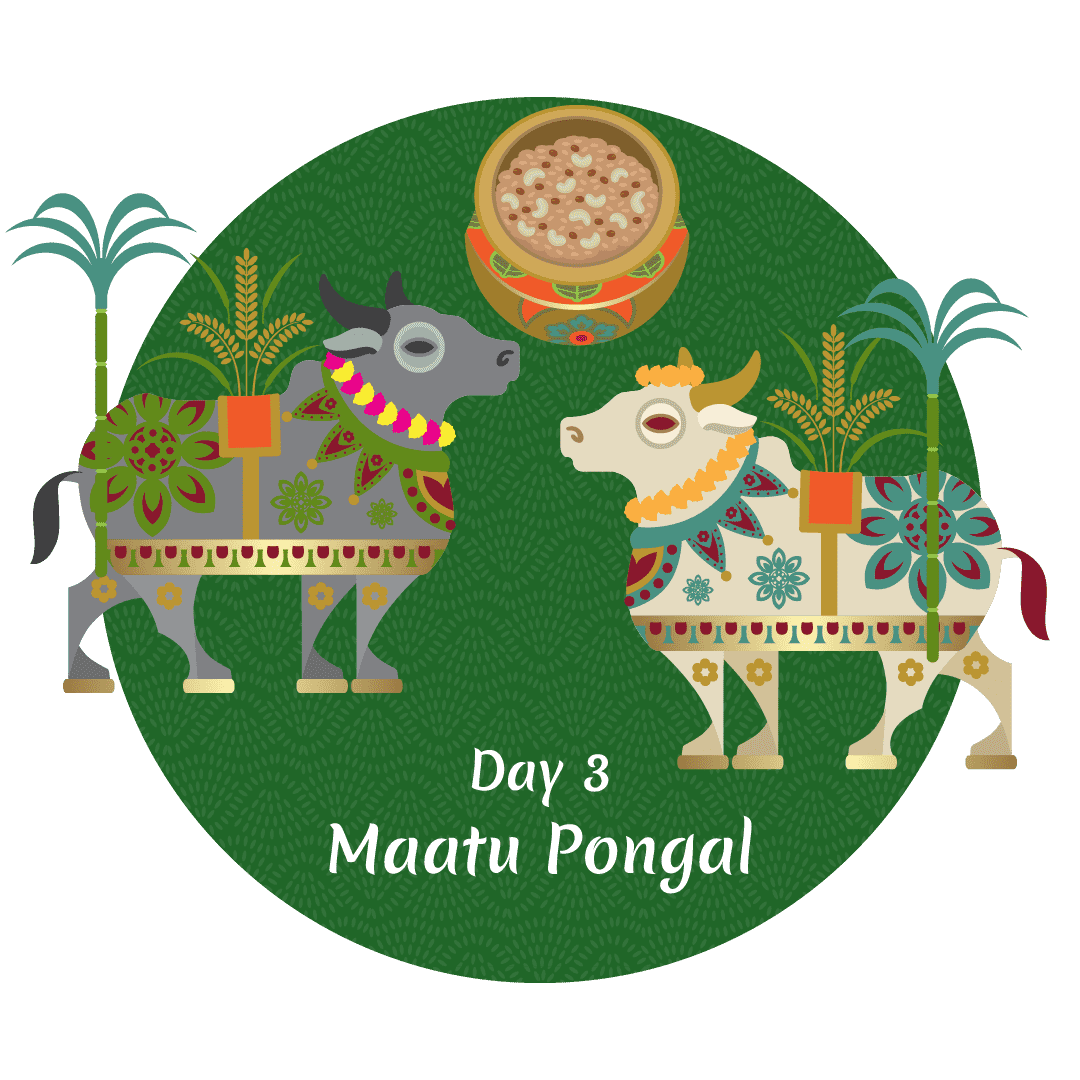
The third day of Pongal is called Maatu Pongal. This day is devoted to honour and worship the cattle (Maatu) to remember the work they do – ploughing the land. Cows are bathed and adorned with multi-coloured beads, flowers garlands, and bells. In Singapore, thanksgiving prayers would be conducted for the cattle at some dairy farms owned by Indians.
DAY 4:
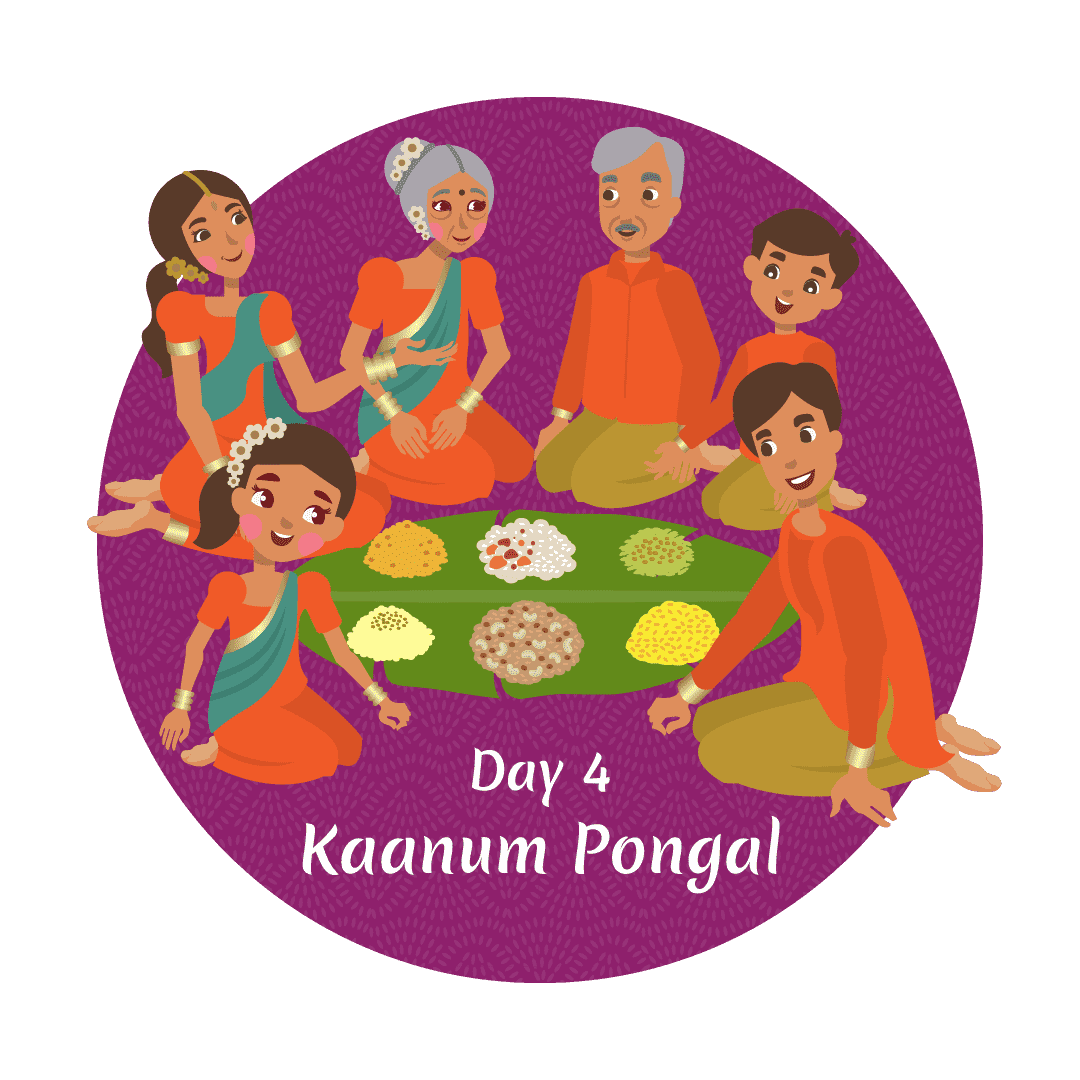
The fourth day of Pongal is called Kaanum Pongal. On this day, importance is given to the community and to strengthen ties. Families gather together to have a sumptuous meal. Younger members seek the blessings of the older members of their families. It is also a day for traditional Indian folk dances such as mayilattam and kolattam.



